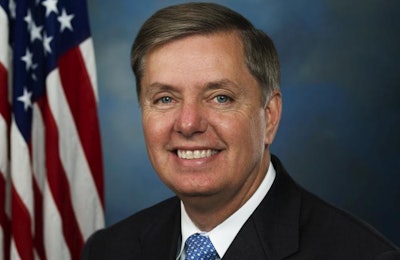
The Senate Chicken Caucus formed in 2013 with the intent of being a bipartisan group of U.S. Senators with a common interest in the chicken industry.
According to information on the website of Sen. Chris Coons, D-Delaware, the caucus “serves as a formal group of members whose mission is to educate other senators and staff about the history, contributions, challenges and opportunities facing the U.S. chicken industry.” Coons, who co-chairs the Senate Chicken Caucus with Sen. Johnny Isakson, R-Georgia, further stated that the caucus “provides a forum for industry leaders, officials and other stakeholders to meet with legislators and examine ways in which the federal government can better serve chicken producers.”
Measuring bipartisanship
While there are twice as many Republicans on the 12-member caucus than there are Democrats, Coons, who is in the minority party, touts the committee as bipartisan. But just because it consists of members from both parties, are the members of the Senate Chicken Caucus bipartisan in their actions in Washington?
The answer to that question is actually pretty encouraging for those that encourage bipartisanship.
The Lugar Center, a non-partisan and non-profit group, and Georgetown University’s McCourt School of Public Policy have recently released an index that ranks the bipartisanship of each U.S. senator, although Majority Leader Mitch McConnell and Minority Leader Chuck Schumer were excluded from the rankings, leaving 98 senators ranked.
The index measures the frequency with which a member co-sponsors a bill introduced by the opposite party and the frequency with which a member’s own bills attract co-sponsors from the opposite party. The rankings were based off of activity during the 2017 session.
And of those on the Senate Chicken Caucus, 8 of the 12 ranked in the upper half in terms of being bipartisan.
How Senate Chicken Caucus members ranked
Among the 98 senators rated, Coons ranked 15th in terms of being most bipartisan, while Isakson ranked 12th.
Other caucus members included:
- Sen Lindsey Graham, R-South Carolina, 6th
- Sen. Mark Warner, D-Virginia, 14th
- Sen. Joni Ernst, R-Iowa, 20th
- Sen. John Boozman, R-Arkansas, 25th
- Sen. Roger Wicker, R-Mississippi, 28th
- Sen. Thom Tillis, R-North Carolina, 35th
- Sen. Bob Casey, D-Pennsylvania, 57th
- Sen. David Perdue, R-Georgia, 59th
- Sen. Tom Carper, D-Delaware, 62nd
- Sen. Tom Cotton, R-Arkansas, 79th
Boozman, Ernst and Perdue are also members of the Senate Committee on Agriculture, Nutrition and Forestry.

















